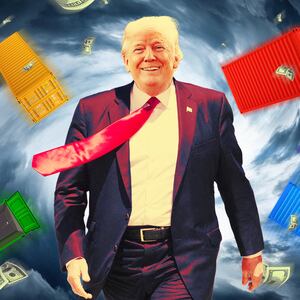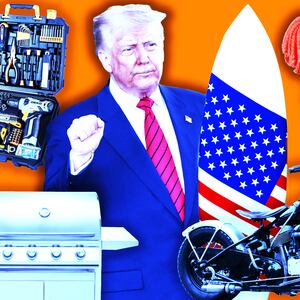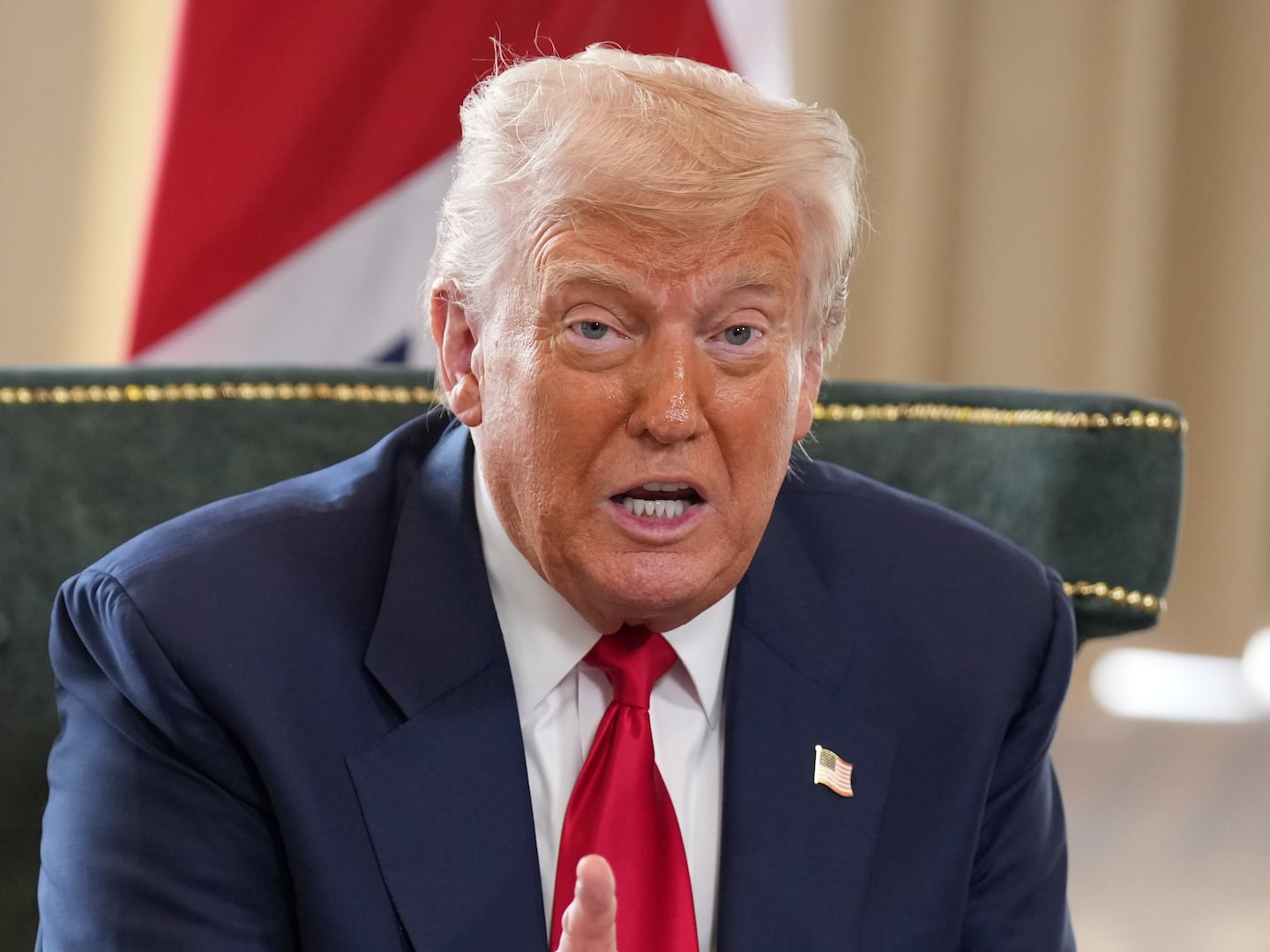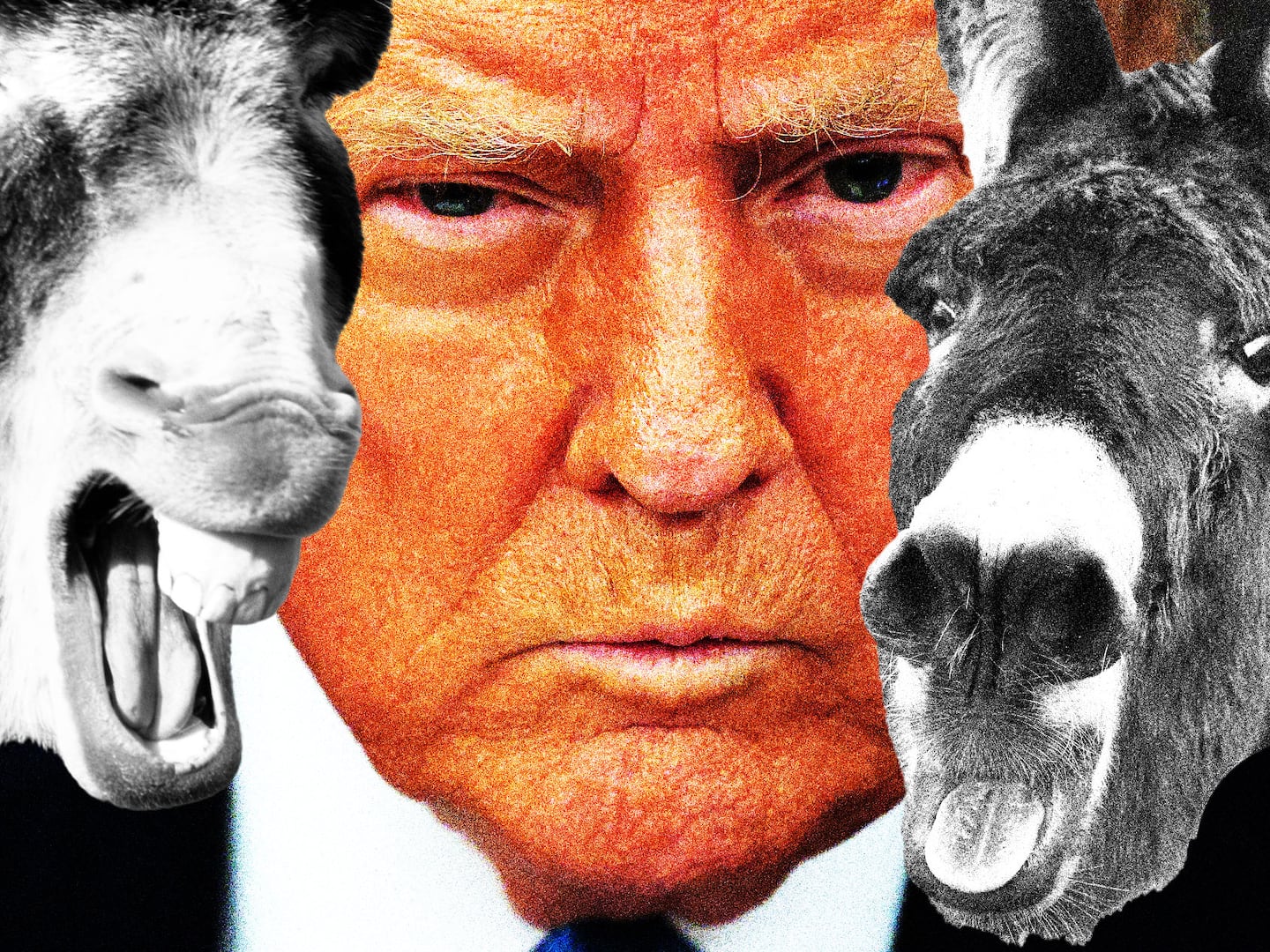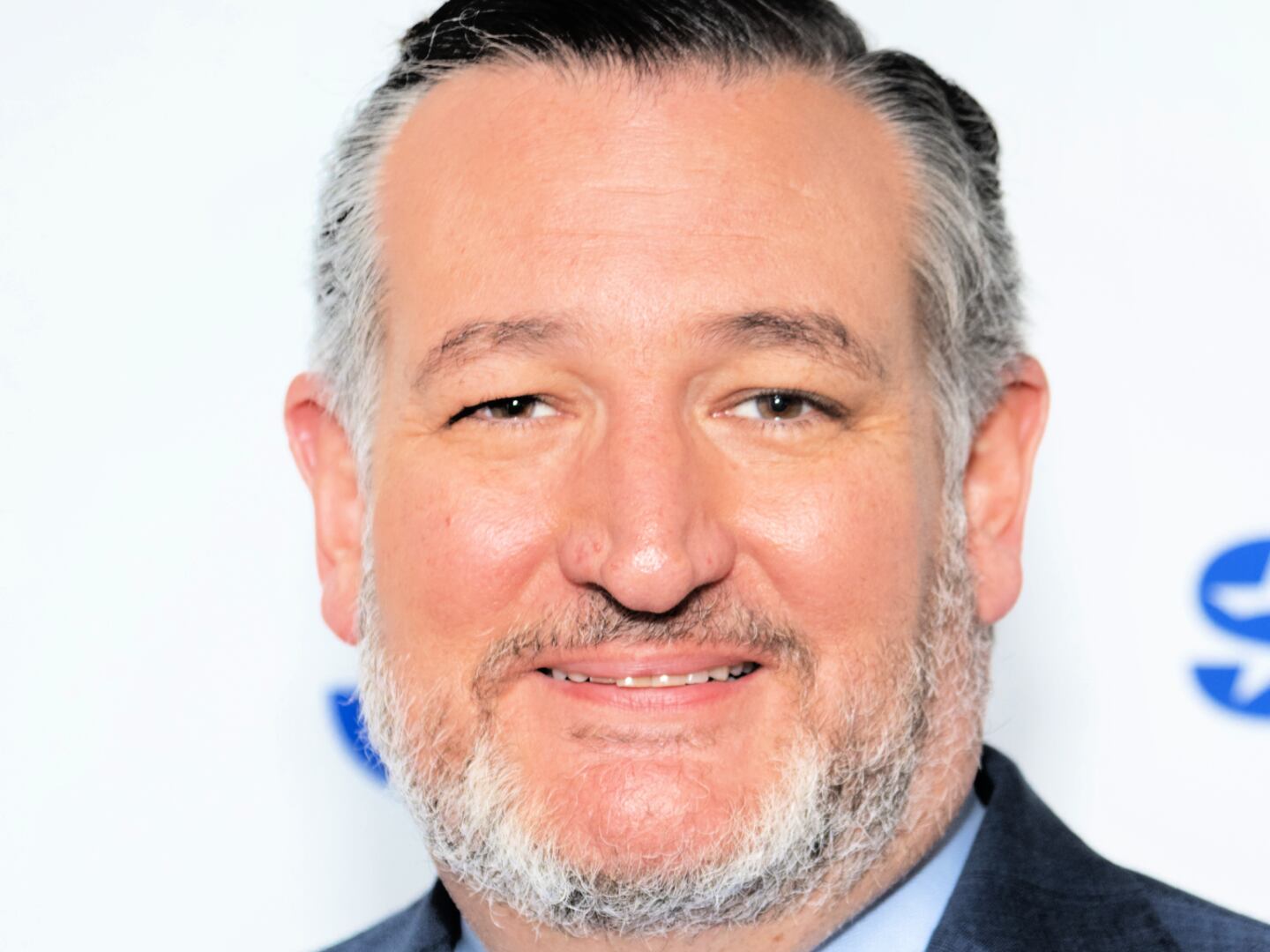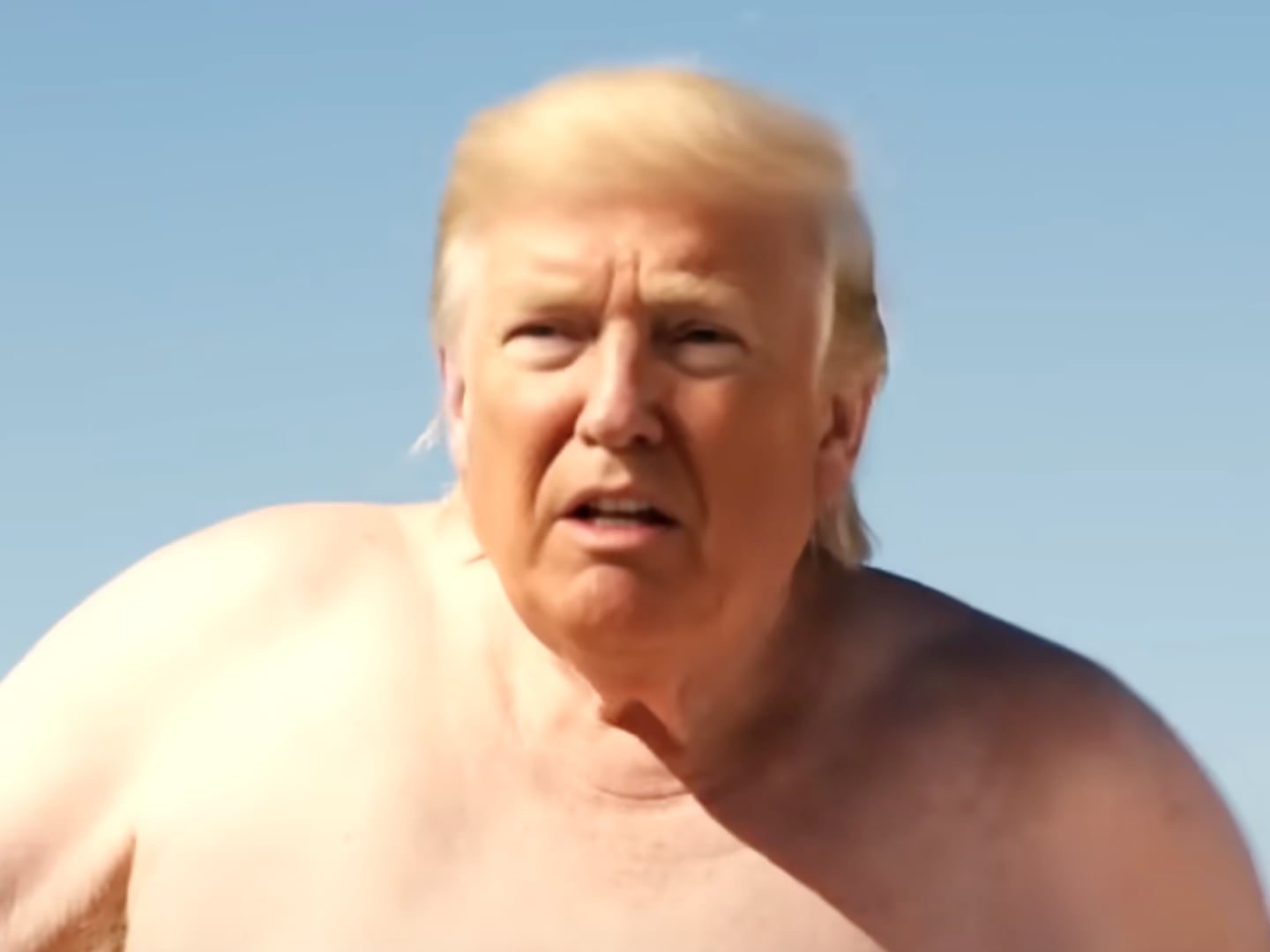One by one, Donald Trump’s trade deals are bringing the world closer together.
Across our fractious planet on which division and conflict abound, everyone has found at least one thing they can agree upon: These deals are a disaster.
No one likes them. No one should.
ADVERTISEMENT
They are anti-policy, the opposite of policy. They are born of no ideas, of a complete misunderstanding of history, economics and international affairs. They achieve nothing. They benefit no one. They cause only damage.
They are the work of a mad king surrounded by mad courtiers who seem committed to finding out what happens when ignorance, arrogance and incompetence are the only ingredients in an economic recipe.
For much of the world, the only comfort comes from the fact that the people who are footing the bill for Trump’s tariffs are the ones whose country elected Trump in the first place.
That’d be us. We’re the suckers.

Because despite regularly repeated lies from the President that these deals are bringing billions of dollars into the country, they are doing nothing of the sort. They are a tax on the American people, paid by the American people, to the detriment of people everywhere on the planet.
The tariffs do not bring one additional penny into the United States. Quite the contrary. They will drive up inflation, slow our economy, alienate our trading partners and give an advantage to our rivals.
The so-called “deals” the president loves to announce—most recently in the case of the “biggest one of them all” with the European Union—are not actually deals. They do not address the details of the trading arrangements being discussed. As a former senior U.S. trade official, I can attest to the fact that, given the complexity of international relations in the modern world, every trade agreement is chock full of just the kind of details these fake deals do not address.
Furthermore, many of the headline “achievements” they offer are what is known in the lingua franca of trade officials and economists worldwide as, well, bulls--t. They are commitments to do things that cannot be committed to. In the announcement of the U.S.-E.U. agreement, for example, U.S. officials touted the commitment of the European Union to buy $600 billion of U.S. goods and services. But, you see, the E.U. does not have the power to make such a promise or to compel such purchases. It will never happen. A deal with Japan contained the same empty promises, as did the big deal with China that Trump made during his first term.

All this raises the question: Why? Why do other countries and their leaders go through the motions of pretending to reach agreements that are not really agreements that contain promises that are not really promises?
They do it to placate Trump. He is threatening them with irrationally high tariffs on their goods and services that would destroy their economies. He does not, by the way, have the legal authority to impose such tariffs, but while Congress and the Courts sleep through this second Trump term here in the U.S., there is no one to point that out. So, they face the prospect of a hugely costly irrational trade war with the United States that would have massive negative global economic repercussions or they can agree to the somewhat less bad but still onerous terms that will allow America’s tinpot president to crow about a new win from his gilded throne room—or, as in the case of this past weekend, from one of his golf courses that he was shamelessly promoting while traveling on the taxpayer’s dime.
(Because why not? The founders never meant those emoluments clauses they put in the Constitution anyway. And why not screw the taxpayers? That doesn’t harm Trump or most of his cronies because they seldom pay any taxes at all.)
With details that will take many months or likely years to finalize and provisions that are as meaningless as a business promise from the Trump Organization, the primary cost of these deals is having to endure the humiliation of the press conference at which they are announced. It’s theater of the absurd but it is the kind of sacrifice—the lesser of the possible evils being offered—that these leaders were paid by their constituents to make.

In my view, they’re making a mistake because in the end, Trump will see them as weak and seek more concessions. But they are making the calculation that they are minimizing the pain and that soon, for one reason or another, Trump will be gone and saner heads may once again prevail.
Among both our allies and many of our rivals, we are in fact, seeing a common approach to managing relations with the president emerging. They are choosing to humor him to the extent that they can stomach it, and hoping that he will sic transit gloria himself out of the picture soonish.
In other words, the leaders of the world are treating Donald Trump like a kidney stone with which they are all afflicted. They will do what they can to dull the pain and hope that it passes soon. In this, I suspect, they have a lot in common with the people of the United States, which could be yet another way these tariffs are knitting the world closer together—and, with some luck, providing the impetus for undoing the damage Trump has done just as soon as he shuffles off his presidential coil.


